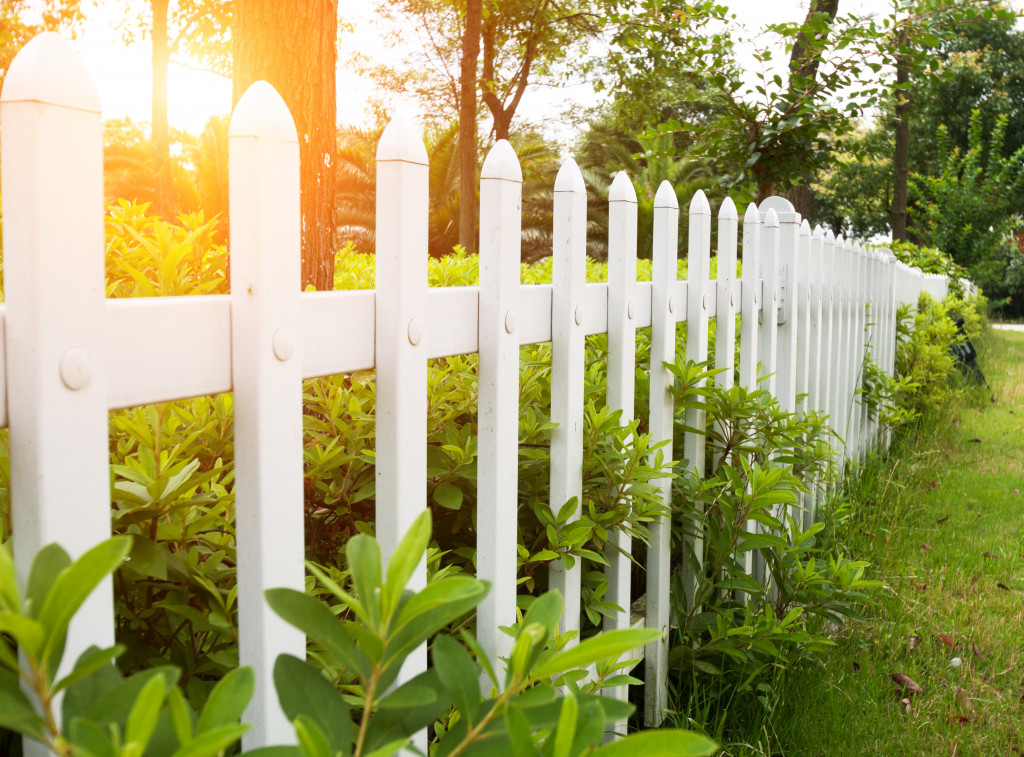- Before expanding your yard, check for underground utilities to avoid costly and dangerous accidents.
- Survey your property to prevent boundary disputes and identify features that could impact your expansion.
- Consult with professionals to ensure proper drainage systems are in place and avoid redirecting water onto neighboring properties.
- Consider the environmental impact by planting native species, avoiding synthetic materials and chemical fertilizers, and utilizing rain barrels.
- Consult with your homeowner’s association to understand regulations and bylaws that may impact your expansion and get approval if necessary.
Expanding your yard can be exciting, giving you more space to enjoy the outdoors and the freedom to create unique landscaping designs. However, it is essential to consider potential issues that may arise during the expansion process. Whether you are planning to add a patio, a pool or simply clear some extra space, taking the proper precautionary measures is crucial. This blog post will discuss tips and tricks for avoiding issues when expanding your yard.
1. Check for Underground Utilities.
Before starting any yard expansion project, it is essential to note the location of all underground utilities. Hitting a gas line or water pipe can be dangerous and costly to repair. Contact a professional to locate underground lines before digging or excavating to expand your lawn’s space.
If you find any underground utility lines, it may be necessary to adjust your design plan to avoid them. Many utility companies offer free services to help you determine the best way to expand your yard without damaging any lines. You can also contact a professional landscaping company to help you identify any potential problems.

2. Get Your Property Surveyed.
Having your property surveyed before beginning any expansion project would be best. This will provide a detailed map of the land and help you avoid issues like boundary disputes and encroachments. A professional land surveyor can also point out features that could impact your expansion plans, such as existing trees or drainage systems. You can use this information to craft a more informed and efficient strategy.
3. Consider Drainage Issues.
Adding an extension to your lawn or installing a pool can create new drainage issues. Consult with professionals to ensure the proper drainage systems are in place. Additionally, avoid redirecting water from your lawn onto neighboring properties, which can cause legal disputes and damage. You may need to construct a retaining wall or adjust your landscaping plans accordingly.
If any drainage changes will impact neighboring properties, it is essential to contact the local authorities and obtain the necessary permits. Don’t forget to factor in the cost of permits, which can vary based on the scope and size of your project.
4. Keep Environmental Factors In Mind.
Before expanding your yard, consider the environmental impact. Simple measures can help protect the environment from the effects of your expansion project. Consider the following tips:
a. Plant native species and create wildlife habitat.
You may want to plant native species, which are better adapted to the local climate and can help support the environment. You can also create wildlife habitats by installing bird baths, feeders, and native plants.

b. Avoid synthetic materials and chemical fertilizers.
Synthetic materials and chemical fertilizers can be harmful to the environment, so it would be best if you avoided them when expanding your yard. Instead, opt for organic materials and natural fertilizers, which are more environmentally friendly.
c. Utilize rain barrels to conserve water.
Consider using rain barrels to conserve water and reduce runoff. This can help protect the environment as well as help you save money on your watering bills.
d. Use stone or gravel instead of concrete to reduce runoff.
Because concrete absorbs heat, it can cause a “heat island” effect. To prevent this, opt for stone or gravel pathways instead of concrete. This will reduce runoff and help keep your lawn cooler.
5. Consult with Your Homeowners Association.
If you live in a community with a homeowner’s association, consulting with them before embarking on any yard expansion is essential. Regulations or bylaws may need to be followed to maintain your property’s curb appeal and the external continuity of the community. Your association may provide valuable insight or suggestions for your yard or landscaping designs.
If they do not have any suggestions, you may need to submit plans for approval. Remember that this process can take time and be costly, so be sure to factor that into your timeline.
Expanding your yard is an exciting process that can add value and beauty to your home. By following the tips discussed in this blog post, you can avoid issues and make the expansion process as smooth as possible. Consider the environmental impact, consult a trusted contractor, and check for underground utilities and drainage issues. By planning and preparing for your yard expansion properly, you are ensuring a beautiful and functional yard for years to come.

